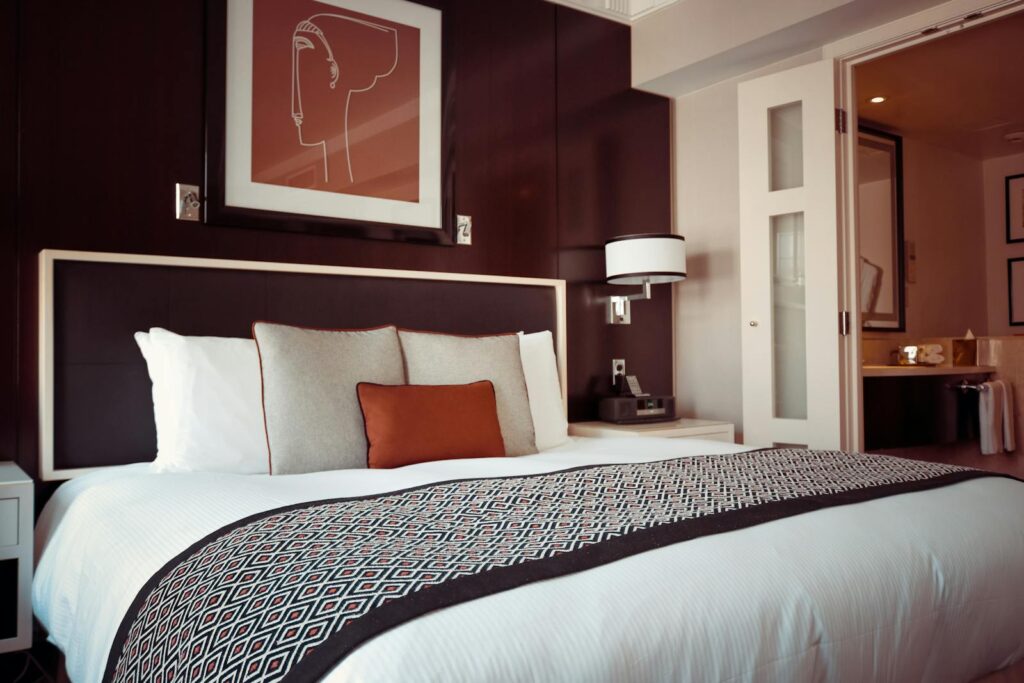The nostalgia for the days when hotel guests returned to impeccably made beds, fresh towels, and spotless surfaces reflects a significant shift in hospitality standards, as daily housekeeping, once a cornerstone of exceptional service, is increasingly being replaced by more limited cleaning practices.
The practice of daily room refreshes hasn’t made a comeback.
Whether it’s due to staffing shortages, social distancing measures, or a strategic cost-saving move, the reality is that the daily fluffing of pillows and tidying of rooms is no longer a guarantee. In fact, for many hotels, it’s become a service of the past. During the pandemic’s uncertainty, hotels slashed housekeeping to minimize contact, and now, over two years later, the practice of daily room refreshes hasn’t made a comeback.
Take Marriott, for instance, where housekeeping services are now on a request basis, with automatic cleaning only happening every sixth night. Hilton has followed suit, with most properties abandoning daily cleanings unless guests speak up. Even Walt Disney World has pared down to ‘light housekeeping’ every other day, which might not include the luxury of having your bed made.
The Hotel Solares in Santa Cruz, California, has adopted a schedule where stays of three nights or fewer get no service, and those staying up to six nights receive a single cleaning, sending a clear message: if you want your trash taken out, leave it outside your door.
This shift hasn’t been universally welcomed, with D. Taylor, international president of Unite Here, expressing concerns by stating, ‘Without cleaning, what stops a hotel from being just a more expensive Airbnb?’

The reasons for these changes are diverse and distinct.
The reasons for these changes are multifaceted, as the leisure and hospitality industry took a massive hit during the pandemic, losing nearly half of its workforce, and rehiring has been a challenge, with the industry still millions of jobs short of pre-pandemic levels, compounded by the soaring costs of cleaning supplies—up 79% according to a survey.
Hilton CEO Christopher Nassetta’s comments during an investor earnings call are telling: ‘The work we’re doing right now…is about making them higher-margin businesses and creating more labor efficiencies,’ envisioning a leaner operation with higher margins and less labor post-pandemic.
So, what can travelers do if they yearn for the days of daily housekeeping? Research is key. Before booking, check the hotel’s cleaning policies online. If you’re seeking that daily touch of luxury, you might have better luck with high-end hotels, though there are exceptions, like Disney’s Grand Floridian Resort & Spa, which follows the every-other-day policy despite its hefty price tag. Alternatively, you could simply ask. A polite request at check-in or on a daily basis might just get you that freshly made bed and clean towels.
The phenomenon of ‘skimpflation’—where companies cut services rather than raise prices—has become a reality in various sectors, and the hotel industry is no exception. As we approach the busy summer season, and with COVID-19 receding, hotels are adjusting yet again, potentially for the worse.
Debbie Winsett, a nonprofit tour planner, noticed these changes firsthand. On a recent trip, her hotel charged for parking and breakfast—amenities that were previously included. When questioned, the response was a shrug and a mention of ‘making up for all the extra COVID costs.’
The future of hotel stays is still uncertain, with some hotels maintaining rigorous cleaning protocols while others are embracing technology to minimize contact, and cancellation policies have become more flexible, indicating that some of these changes may be here to stay.

The hotel experience is undeniably evolving, and daily housekeeping services may become a casualty of the pandemic’s lasting impact, making it crucial to remain informed and adjust our expectations accordingly, as guests may find that the next time they check into a hotel, they could be taking on responsibilities such as making their own beds, reflecting a shift in service models within the hospitality industry.
Related posts:
Make your own darn bed: Hotels ditch daily housekeeping services
Overworked, underpaid: workers rail against hotel chains’ cost-cutting





